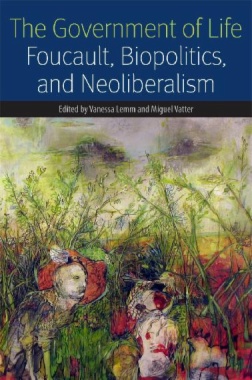Foucault’s late work on biopolitics and governmentality has established him as the fundamental thinker of contemporary continental political thought and as a privileged source for our current understanding of neoliberalism and its technologies of power. In this volume, an international and interdisciplinary group of Foucault scholars examines his ideas of biopower and biopolitics and their relation to his project of a history of governmentality and to a theory of the subject found in his last courses at the College de France.
Many of the chapters engage critically with the Italian theoretical reception of Foucault. At the same time, the originality of this collection consists in the variety of perspectives and traditions of reception brought to bear upon the problematic connections between biopolitics and governmentality established by Foucault’s last works.
- Cover
- Contents
- List of Abbreviations
- Acknowledgments
- Introduction
- Part I. The Nomos of Neoliberalism
- 1. The Fourth Age of Security
- 2. The Law of the Household: Foucault, Neoliberalism, and the Ira ni an Revolution
- 3. The Risks of Security: Liberalism, Biopolitics, and Fear
- Part II. Genealogies of Biopolitics
- 4. A Genealogy of Biopolitics: The Notion of Life in Canguilhem and Foucault
- 5. Power over Life, Politics of Death: Forms of Resistance to Biopower in Foucault
- 6. Identity, Nature, Life: Three Biopolitical Deconstructions
- Part III. Liberalism between Legality and Governmentality
- 7. From Reason of State to Liberalism: The Coup d’État as Form of Government
- 8. Foucault and Rawls: Government and Public Reason
- 9. Foucault and Hayek: Republican Law and Liberal Civil Society
- Part IV. Philosophy as Ethics and Embodiment
- 10. Parrhesia between East and West: Foucault and Dissidence
- 11. The Embodiment of Truth and the Politics of Community: Foucault and the Cynics
- Notes
- Bibliography
- List of Contributors
- Index

